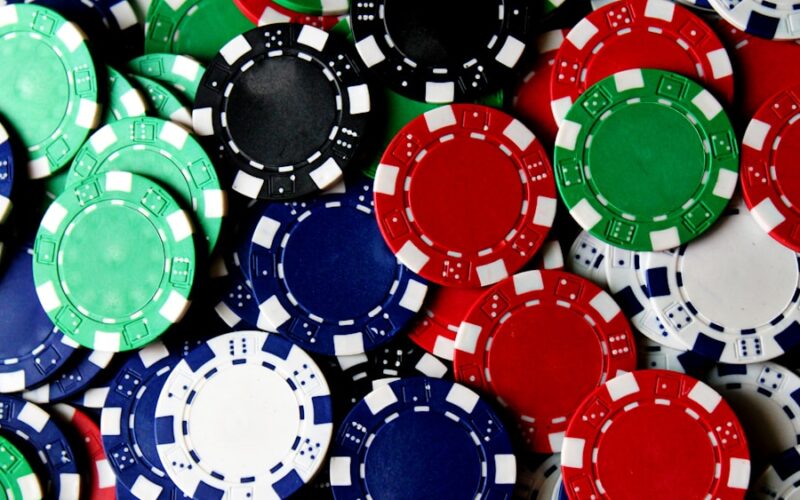Risk-taking is a fundamental aspect of human behavior, and it plays a significant role in gambling. The psychology of risk-taking is complex and multifaceted, involving a combination of cognitive, emotional, and motivational factors. One of the key psychological drivers of risk-taking behavior is the concept of reward-seeking. When individuals engage in risky activities such as gambling, they are motivated by the potential for a positive outcome, such as winning money or experiencing a sense of excitement and thrill. This desire for reward can override rational decision-making processes and lead individuals to take risks that they might not otherwise consider.
Another important psychological factor that influences risk-taking behavior is the role of emotions. Emotions such as excitement, anticipation, and hope can drive individuals to take risks in the pursuit of a desired outcome. On the other hand, emotions such as fear, anxiety, and frustration can also impact risk-taking behavior by influencing individuals to avoid or minimize potential losses. Additionally, individual differences in personality traits, such as sensation-seeking and impulsivity, can also play a role in shaping risk-taking behavior. For example, individuals who are high in sensation-seeking may be more inclined to take risks in order to seek out novel and stimulating experiences, while those who are high in impulsivity may be more likely to act on impulse without fully considering the potential consequences.
The Mathematics of Probability
The mathematics of probability is a fundamental concept that underpins the design and operation of gambling games. Probability theory is used to calculate the likelihood of different outcomes occurring in a game of chance, such as the probability of rolling a specific number on a dice or drawing a particular card from a deck. Understanding the mathematics of probability is essential for both players and casino operators, as it allows them to make informed decisions about their actions and strategies.
One of the key principles of probability theory is the concept of expected value, which is used to calculate the average outcome of a series of random events. For example, in a game of roulette, the expected value can be used to determine the average amount of money that a player can expect to win or lose over time. Another important concept in probability theory is the law of large numbers, which states that as the number of trials increases, the observed frequency of an event will converge towards its theoretical probability. This principle is important for understanding the long-term outcomes of gambling games and for making decisions based on statistical probabilities rather than short-term fluctuations.
The Role of Random Number Generators
Random number generators (RNGs) are a crucial component of modern gambling technology, as they are used to ensure that the outcomes of games are truly random and unpredictable. RNGs are computer algorithms that generate sequences of numbers that have no discernible pattern or predictability, making them ideal for simulating the randomness of real-world events. In casino games such as slot machines and online poker, RNGs are used to determine the outcome of each game round, ensuring that the results are fair and unbiased.
The use of RNGs has become increasingly important in the gambling industry, as they provide a level of transparency and trustworthiness that is essential for maintaining player confidence. By using RNGs to generate game outcomes, casino operators can demonstrate that their games are free from manipulation and that all players have an equal chance of winning. Additionally, RNGs are also used to ensure compliance with regulatory standards and to prevent cheating and fraud. Overall, RNGs play a critical role in ensuring the integrity and fairness of gambling games, providing players with a sense of confidence and security in their gaming experience.
Understanding the House Edge
The concept of the house edge is a fundamental principle in gambling mathematics that determines the long-term profitability of casino games. The house edge represents the statistical advantage that the casino has over the players, and it is calculated as the difference between the expected value of a bet and its actual value. In essence, the house edge reflects the percentage of each bet that the casino expects to retain as profit over time.
The house edge varies depending on the specific game being played, with some games offering a higher advantage to the casino than others. For example, games such as slot machines and roulette typically have a higher house edge compared to games like blackjack and baccarat. Understanding the house edge is important for players, as it allows them to make informed decisions about which games to play and how to manage their bankroll effectively. Additionally, casino operators also use the house edge to determine the profitability of their games and to set appropriate betting limits and payouts.
The Impact of Game Design on Player Engagement
The design of gambling games plays a crucial role in shaping player engagement and behavior. Game designers use a variety of techniques to create immersive and compelling gaming experiences that captivate players and keep them coming back for more. One key aspect of game design is the use of visual and auditory stimuli to create an engaging and stimulating environment. For example, slot machines often feature vibrant graphics, dynamic animations, and catchy sound effects that are designed to capture players’ attention and create a sense of excitement.
Another important aspect of game design is the use of reward systems to incentivize player participation. Many gambling games incorporate elements such as bonus rounds, free spins, and progressive jackpots to provide players with opportunities for additional rewards and incentives. These reward systems are designed to keep players engaged and motivated to continue playing, even during periods of losses. Additionally, game designers also use principles from behavioral psychology to create variable reinforcement schedules that provide intermittent rewards at unpredictable intervals, which has been shown to increase player engagement and persistence.
The Influence of Cognitive Biases on Gambling Behavior
Cognitive biases are systematic patterns of deviation from rationality in judgment and decision-making, and they can have a significant impact on gambling behavior. One common cognitive bias that influences gambling behavior is the gambler’s fallacy, which is the belief that past events can influence future outcomes in random events. For example, a player may believe that after a series of losses in roulette, they are “due” for a win, leading them to continue betting in hopes of reversing their luck.
Another cognitive bias that affects gambling behavior is known as the illusion of control, which is the tendency for individuals to overestimate their ability to influence random events. This bias can lead players to believe that they have control over their outcomes in gambling games, leading them to make irrational decisions based on false beliefs about their skills or strategies. Additionally, cognitive biases such as confirmation bias and availability heuristic can also impact gambling behavior by influencing how individuals interpret information and make decisions based on incomplete or biased information.
The Neurological Effects of Winning and Losing
Winning and losing in gambling games can have profound neurological effects on the brain, influencing emotions, motivation, and decision-making processes. When individuals experience a win in gambling, it triggers the release of dopamine in the brain, which is associated with feelings of pleasure and reward. This surge of dopamine can create a sense of euphoria and excitement, reinforcing positive associations with gambling and motivating individuals to continue playing in pursuit of more rewards.
On the other hand, losing in gambling can also have significant neurological effects on the brain. Research has shown that experiencing losses in gambling games can activate regions of the brain associated with negative emotions such as disappointment and frustration. This can lead to changes in mood and motivation, influencing individuals to engage in behaviors such as chasing losses or increasing their bets in an attempt to recoup their losses. Additionally, repeated exposure to winning and losing outcomes in gambling can lead to neuroplastic changes in the brain’s reward system, potentially contributing to the development of addictive patterns of behavior.
In conclusion, gambling behavior is influenced by a complex interplay of psychological, mathematical, technological, and neurological factors. Understanding these factors is essential for both players and casino operators in order to promote responsible gambling practices and create engaging and fair gaming experiences. By considering the psychology of risk-taking, the mathematics of probability, the role of random number generators, the house edge, game design principles, cognitive biases, and neurological effects on winning and losing, it is possible to gain deeper insights into the dynamics of gambling behavior and its impact on individuals’ well-being.

